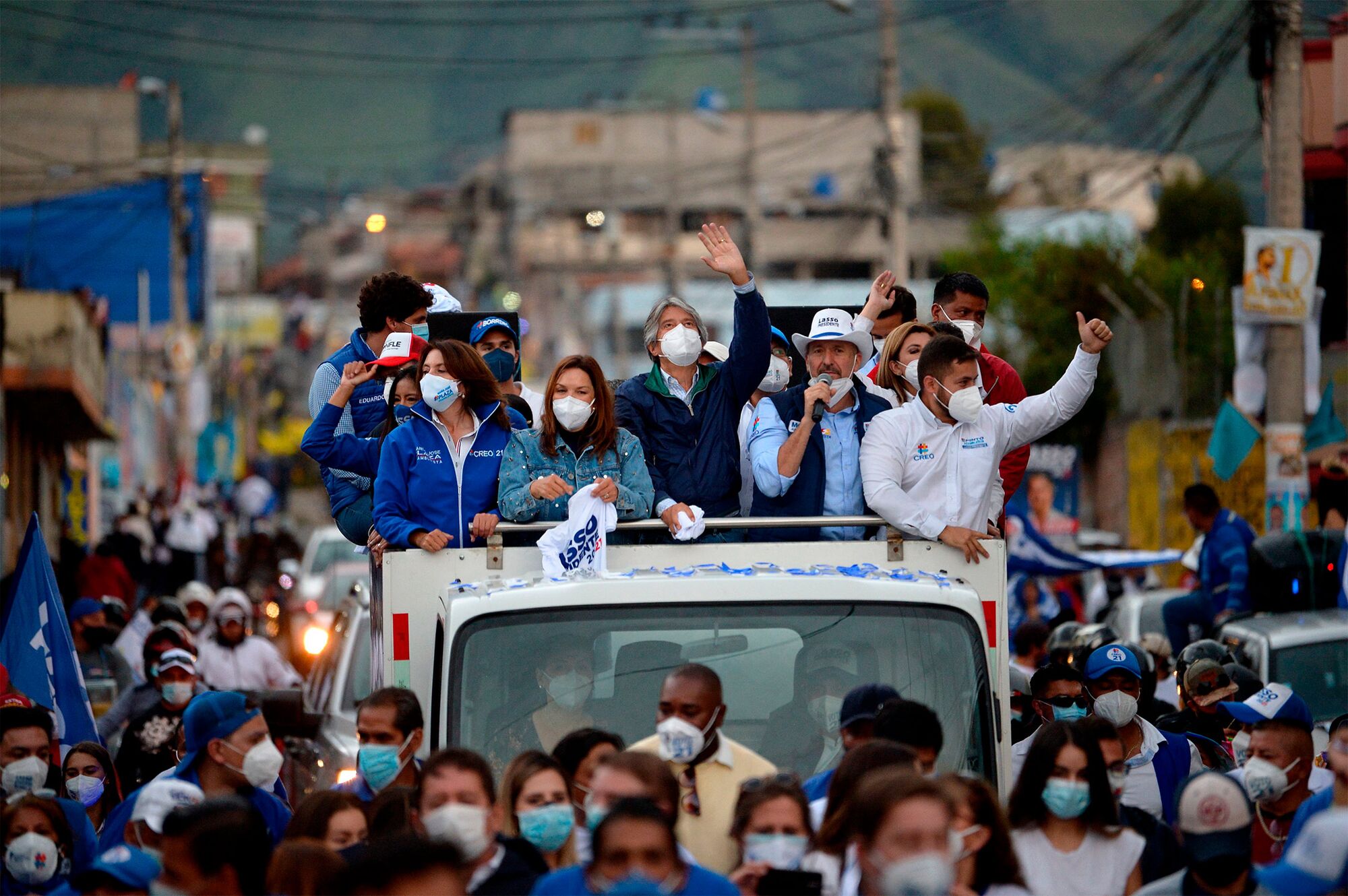Why Ecuador’s Sunday Vote Matters for the Bond Market: QuickTake
By and
A record 16 candidates are on the ballot in the first round of Ecuador’s presidential election on Feb. 7. But coming just months after the nation’s 11th default or debt rescheduling since its founding in 1830, the vote comes down to a binary choice: whether to accept potentially harsh economic reforms, softened by loans from multilateral banks like the International Monetary Fund and World Bank, with the goal of integration with nearby countries and freer trade with the U.S.; or to return to a socialist Venezuela-style model of heavy government involvement in the economy. Those stakes mean the election will be watched beyond Ecuador’s borders, particularly in the bond market.
1. Who are the main candidates?
Guillermo Lasso, 65, is a career banker from the coastal hub Guayaquil and the favored candidate of conservatives. Andres Arauz, who turns 36 the day before the vote, is a left-wing economist.
He’s the protege of former socialist President Rafael Correa, who is in exile in Belgium, having been convicted in absentia for graft. Yaku Perez, a 51-year-old lawyer and anti-mining activist for the indigenous Pachakutik party, consistently places third in polls, behind Lasso and Arauz. If no candidate wins an absolute majority or obtains a minimum 40% with a 10-point margin over the runner-up, a runoff is scheduled for April 11.
2. What’s the issue for markets?
Ecuador is notorious in the bond market as a serial defaulter, having restructured $17.4 billion in debt just last year -- Ecuador uses the U.S. dollar -- and owing $45.4 billion in total foreign debt. Investors will be on the alert for signs that the next government will honor the terms of that agreement. The new administration will also be judged on how it maintains austerity measures required under a deal inked in September with the International Monetary Fund. Austerity is less likely should Arauz be elected. That could stoke a selloff in the new bonds and further threaten the nation’s debt sustainability. A victory by Lasso, by contrast, could bring the nation back to international debt markets by 2022, in the view of one strategist.
3. Has the IMF deal stabilized the economy?
The IMF front-loaded $4 billion in the $6.5 billion rescue package in the second half of 2020, representing approximately 4% of the country’s annual GDP. This crucial influx of money has allowed the administration of President Lenin Moreno, who opted not to seek a second term, to largely stay current with civil servants and pay off some debts to government contractors, in turn allowing them to pay salaries and debts. Ecuador’s economy likely shrank a record 8.9% in 2020, according to the central bank.
4. What do the candidates promise?
Lasso’s main pledge is to strengthen investor confidence through orthodox economic reforms, reducing red tape and increasing private-sector hiring, using neighboring Colombia and Peru as models. He also promised to raise the minimum wage to $500 and to reform public health care hit hard by Covid-19, and picked a doctor as his running mate. Arauz promises to kickstart growth by distributing $1,000 each to 1 million needy families -- using $1 billion of central bank reserves -- in his first week as president. He also wants judges to review the case against Correa and allow him to return from exile. Perez says he would pursue negotiations with creditors in hopes of easing the nation’s debt payments, perhaps by extending maturities.
5. What’s the backdrop to all this?
From his exile in Belgium, Correa played a key role in picking Arauz, a relative political unknown, to carry on his legacy. Correa featured prominently in ads and on posters until they were banned by the National Electoral Council on the grounds that his conviction had stripped him of the right to campaign. During Correa’s presidency, from 2007 to 2017, Ecuador’s relations with the U.S. soured as he aligned the country with Cuba, Venezuela and Iran. China became a crucial lender, providing billions for infrastructure built by Chinese companies. Since 2017, under Moreno, Ecuador restored ties to the U.S., and in the last days of Donald Trump’s presidency, the U.S. International Development Finance Corp. struck a deal to help Ecuador repay billions of dollars owed to China.

Keine Kommentare:
Kommentar veröffentlichen